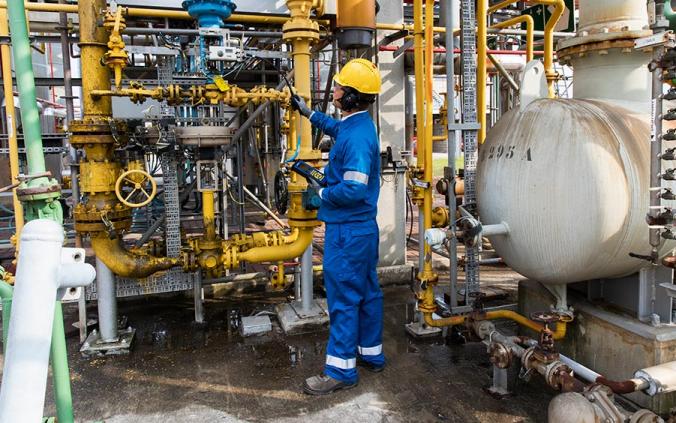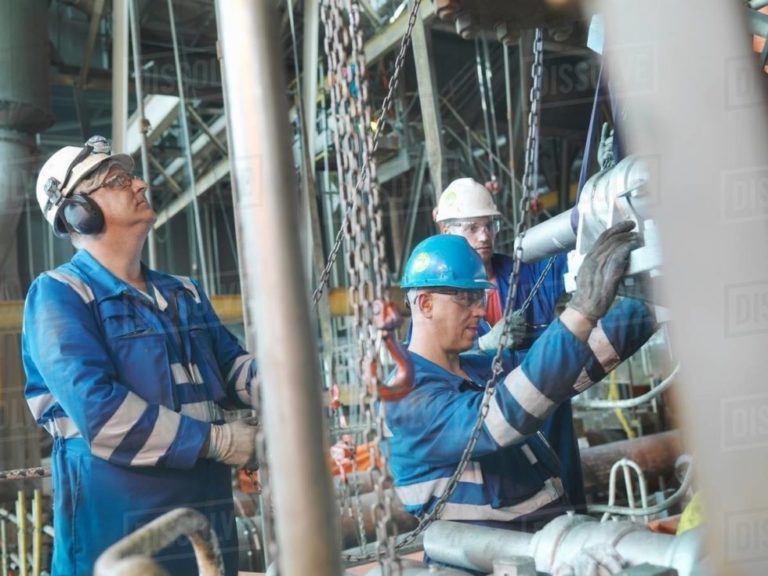What’s the Difference Between Routine and Non-Routine Maintenance for Fixed Nuclear Gauges?

Introduction
Today’s Radiation Safety Officer (RSO) face increasing pressure to lower operating costs in order to remain profitable and competitive in their respective industries. Maintenance is typically a major budget item that comes under scrutiny and careful inspection to see where cost cuts can be found. Many companies find increasing or enhancing their internal maintenance capabilities and becoming less dependent on outside contractors can lead to cost savings they are striving for. When dealing with nuclear gauges; however, there are very strict regulatory limits that may directly conflict with a company’s cost-cutting directives. Knowing the regulatory maintenance constraints, and complying with regulatory maintenance criteria is an important function of the RSO.

Nuclear Gauge Maintenance Categories
Due to the high strength radioactive sources employed in these nuclear gauges and potential risk of harmful exposure, the NRC regulations specifically address nuclear gauge maintenance activities. Regulations separate maintenance into two categories; routine, and non-routine. Typically, routine maintenance activities are allowed to be performed in-house, whereas, non-routine are most often performed by specially trained outside specialists.
The license granted to each company for use of nuclear gauges very specifically and clearly addresses which of these two types of activities are allowed. What is not always clearly identified in either the license or the regulations are which category each maintenance activity is categorized. Additional ambiguity also exists due to use of different terms used by manufacturers and their distributors.
This article reviews the regulations and more specifically categorizes all maintenance activities associated with nuclear gauges.
Regulatory References
Routine Maintenance
Routine maintenance includes general cleaning and operational checks as described by the gauge manufacturer or distributor as allowed by the operator.
Maintenance technicians must:
- Be trained in accordance with the gauge manufacturer or distributor instructions
- Follow good radiation safety practices in accordance with ALARA
- Ensure the gauge functions as designed and source integrity is not compromised
Allowed Activities
- Cleaning the Gauge Housing
- Leak Testing: With a little training, the RSO or an Authorized User will be able to take a smear of each gauge and then send the sample off to a certified testing laboratory to confirm the absence of radioactive contamination. To perform the leak test analysis in-house, your organization must have the right kind of equipment, a well-controlled program, and be specifically licensed by the NRC or an Agreement State.
- Shutter Operational Checks
- External Lubrication of Shutter Mechanism
- Calibration
- Electronic Repairs
- Follow-up Radiation Surveys: Radiation surveys after the initial survey are only required if any physical changes surrounding the gauge are made that does not directly involve the gauge itself. Any time a gauge is modified, removed, or relocated, a non-routine initial survey is required.
- Gauge Mounting: (is only allowed if the specific gauge SSD permits it, see Gauge Mounting vs. Gauge Installation section below)
Non-Routine Maintenence
Non-routine activities include any maintenance or repair where a risk exists for being exposed to the radiation’s primary beam that could result in an over exposure. Specific authorization by the NRC or an Agreement State is required to perform non-routine maintenance and repair of gauges. Licensed personnel are required to have specialized training and follow appropriate procedures consistent with the manufacturer’s or distributor’s instructions and recommendations. They must also employ proper radiation safety practices in accordance with ALARA, and be equipped with a radiation survey meter, a shielded container for the source, and personal dosimetry wherever required. Licenses for non-routine maintenance activities on nuclear gauges are usually not granted to gauge operators.
Activities
- Gauge Installation: (see Gauge Mounting vs. Gauge Installation section below)
- Initial Survey
- Maintenance and repair of radiological safety components which include:
- The source
- Source holder
- Source drive mechanism
- Shutter
- Shutter control
- Shielding
- Relocating Gauges
- Removal of a gauge from service
- Beam Alignment
- Source Reloading
- Disposal of Sealed Sources
- Dismantling
- Decommissioning
- Any activity where a potential for any portion of the body can come into contact with the primary radiation beam
- Any activity that would result in excessive dose or a dose exceeding NRC limits

Gauge Mounting vs. Gauge Installation
Mounting a gauge is permitted as a routine maintenance activity only if the gauges’ SSD registration explicitly permits it. Mounting is defined by the NRC as unpacking, uncrating the gauge and fastening or hanging it into position before using. Mounting does not include electrical connection, activation, or operation of the gauge.
Installation of a gauge is a non-routine maintenance activity and is defined as mounting, electrical connection, activation, and first use of the device.
Conclusion
The RSO must be able to clearly understand which maintenance activity falls under the routine and non-routine categories and see to it that each are carried out in accordance with regulations.
The primary difference between routine and non-routine maintenance activities are the risk factors involving:
- An over exposure to radiation
- Any operation that could potentially alter the gauges performance from its original design specifications
If the maintenance activity poses any of these risks, they fall under the non-routine category where an outside contractor with a specifically trained and licensed technician is required to perform them.
The strict safety design parameters of these nuclear gauges and the ruling for which they are maintained has resulted in a very noteworthy industry safety record. Keeping your workers safe and your nuclear gauge maintenance program regulatory compliant is an important role the Radiation Safety Officer is entrusted with. Don’t let cost cutting measures pressure you into crossing the line between routine and non-routine maintenance activities. Be smart, be safe, be compliant, and keep the excellent industry record rolling forward.
We Perform Routine & Non Routine Services
Radiation Solutions is a licensed and experienced company that can provide both routine and non-routine gauge services. If you are needing these type of services, please contact us via the email quote request button below or by calling (208) 206-3203.
